Английский язык в правоведении : учебное пособие для магистрантов и аспирантов
Здесь можно купить книгу "Английский язык в правоведении : учебное пособие для магистрантов и аспирантов" в печатном или электронном виде. Также, Вы можете прочесть аннотацию, цитаты и содержание, ознакомиться и оставить отзывы (комментарии) об этой книге.
Место издания: Москва
ISBN: 978-5-4499-3189-4
Страниц: 208
Артикул: 97543
Возрастная маркировка: 16+
Краткая аннотация книги "Английский язык в правоведении"
Учебное пособие предназначается для магистрантов и аспирантов юридических вузов, изучающих английский язык. Пособие состоит из девяти тематических блоков-модулей, отражающих различные направления специализации учащихся: «Разновидности права», «Государственное устройство и государственное управление», «Уголовное право», «Экологическое право», «Гражданский процесс», «Право предпринимательской деятельности», «Корпоративное право», «Трудовое право» и «Финансовое право». Каждый тематический блок состоит из 4 базовых текстов, составленных на основе аутентичного языкового материала о правовой действительности страны изучаемого языка.
Содержание книги "Английский язык в правоведении : учебное пособие для магистрантов и аспирантов"
Introduction
Unit 1. Categories of Law
1.1. Introduction to Law
1.2. Public International Law
1.3. Private International Law
1.4. European Union Law
Unit 2. State Structure and Public Administration
2.1. Constitutional, Administrative and Municipal Law: Explanation of Terms
2.2. Purpose of a Constitution
2.3. Functions and Powers of Administrative Agencies
2.4. Local Government
Unit 3. Criminal Law
3.1. Criminal Liability
3.2. Legal Protection of People Accused of Crimes
3.3. Criminal Justice Process
3.4. Criminal Sentencing
Unit 4. Environmental Law
4.1. Environment Protection: Explanation of Terms
4.2. Principles of International Environmental Law
4.3. Domestic Environmental Law
4.4. Remedies in Environmental Proceedings
Unit 5. Civil Litigation
5.1. Types of Civil Litigation and Parties to the Litigation
5.2. Selecting the Proper Court and Commencement of Proceedings
5.3. Pretrial Stages of Proceedings
5.4. Civil Trial and Alternative Forms of Dispute Resolution
Unit 6. Business Law
6.1. Forms of Business: Sole Proprietorship, Partnership and Corporation
6.2. Relationships Among Businesses
6.3. Financing a Business
6.4. Business Litigation Overview
Unit 7. Corporate Law
7.1. Corporation, Corporate Financing and Key Players in a Corporation
7.2. Corporate Formation, Changes in Corporate Structure and Termination
7.3. Ownership of a Corporation and Management of a Corporation
7.4. Antitrust Law and Other Means of Government Regulation of Corporate Operations
Unit 8. Labor Law
8.1. Three Interrelated Parts of Labor Law
8.2. Employer-Employee Relationship
8.3. Employee Privacy Laws
8.4. Trade Unions and Industrial Relations
UNIT 9. Financial Law
9.1. Money, Financial Instruments and Financial Institutions
9.2. Preconditions for Efficient Financial Systems
9.3. Overview of Tax Law
9.4. Insurance in Brief Terms
Приложение 1. Типовые выражения, используемые в устных выступлениях по теме
Приложение 2. Практикум по переводу аутентичного текста
Приложение 3. Общедоступные онлайн ресурсы для выполнения заданий по дисциплине «Английский язык в правоведении»
Все отзывы о книге Английский язык в правоведении : учебное пособие для магистрантов и аспирантов
Отрывок из книги Английский язык в правоведении : учебное пособие для магистрантов и аспирантов
(i) A Regulation is entirely binding upon the Member States of the EU. It is directly applicable without the need for the national Parliament to enact the regulation through domestic legislation. Regulations are directly applicable, both against the state (known as being directly applicable) and against individuals and companies (known as being horizontally applicable). An example of a Regulation is the free movement of workers within the EU regulation. (ii) A Directive imposes a binding duty on Member States to implement the provisions contained within the Directive. A Directive is not however directly imposed. Instead, the Member State is responsible for determining the form and method by which to implement the provisions of the Directive into its domestic law. A Directive is said to have 'vertical effect' since it 'directs' a Member State to incorporate the Directive into its own law. (iii) Decisions are binding upon those to whom they are addressed and include decisions from: - the Commission, which represents the EU as a whole; - decisions of the ECJ, which adjudicates on disputes between Member States relating to alleged violations of treaties as well as makes rulings on the correct interpretation of EU legislation. (iv) Recommendations and opinions: they are issued by the Commission or the Council. Such recommendations and opinions are persuasive in nature and have no binding force. They can be used to clarify the meaning of legal provisions and often indicate how the law may develop in the future. General Principles of E C Law 6. The general principles of EC law arose from a variety of sources - constitutions of the Member States and the express provisions of, or the interpretations of, treaty articles - which then were developed by the ECJ to become the 'unwritten law' of the Community.
Попов Е. Б. другие книги автора



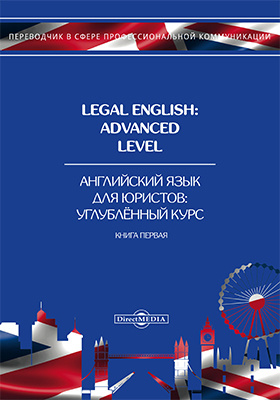
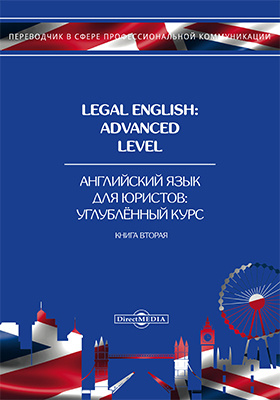
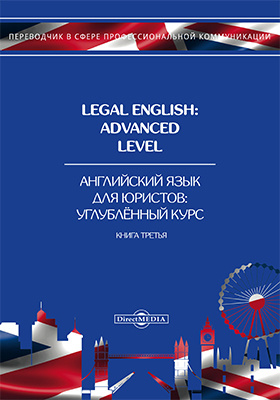
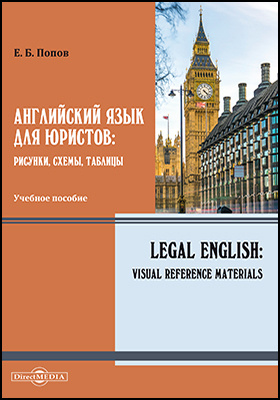



С книгой "Английский язык в правоведении" читают














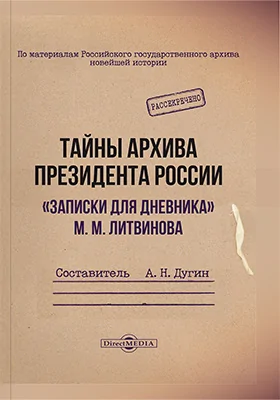













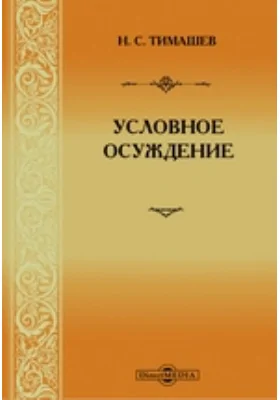
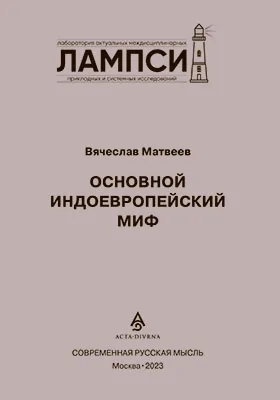
















Внимание!
При обнаружении неточностей или ошибок в описании книги "Английский язык в правоведении : учебное пособие для магистрантов и аспирантов (автор Евгений Попов)", просим Вас отправить сообщение на почту help@directmedia.ru. Благодарим!
и мы свяжемся с вами в течение 15 минут
за оставленную заявку

